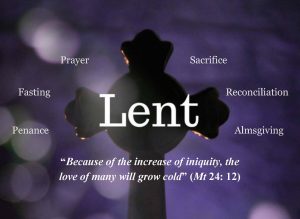By Fr George Adimike
Join our WhatsApp Channel
Even though pleasure serves man’s appreciation of his immeasurable worth as a son-steward entrusted with the universal estate of God (creation), it can be abused. Hence, irrespective of its value to life, pleasure, precisely as opium, robs life of its 3-D quality and leaves it purposeless.
In his pursuit of pleasures, man sacrifices purpose, direction and focus. In a word, he trades away the three-dimensional (3-D) quality of life for momentary gratification. With its seldom narcotic effect, pleasure often disconnects us from God, leaves us with superficial roots and eventually initiates man into worshipping at the hedonistic altar of id. As such, through self-indulgence, human fragility can and does submit to the overlordship of the devil. However, pleasure retains its value when it is consistent with the original creative protocol relative to man – when it fits within the right order and balance. Pleasure becomes a boon when it responds to the echo from man’s heart who, as Jean-Paul Satre remarks, is in an infinite desire for God.

Succumbing to the narcotic allurement of pleasure is not only symptomatic of spiritual bankruptcy but in itself torpedoes spiritual depth, subverts formation and sublimates divine consolation. It plagiarises true happiness, destroys personal equilibrium and increases dependency. What is more, entrapment in the bondage of pleasure atrophies individual liberty and stability, distorts relationships, destabilizes societal balance, funds delinquency and deludes one in enslavement by the id. Consequently, it adversely affects the will, thwarts ethical foundations and disrupts man’s salvific journey.
While there is a legitimate pleasure towards which all tend, and which accompanies all attainment of good, the problem has always been the disruption of right relationship. When humans succumb to the perennial temptation of self-deification (cf Gen 3:5) or “godification” of gold (cf Exodus 32:1-4), they divinize material elements turning them into idols instead of icons. Correspondingly, they constitute obstacles to man’s self-realisation and fulfilment of his true identity and vocation. Indeed, when the value attached to these elements produces the opposite effect that man forgets their agential role, it derails from their real purpose. But the right order relative to material elements accentuates the integrity of creation and reveals it as cosmos, hence beauty or order. Consequently, sin ruptures this order and distorts its beauty.
The pursuit of pleasure as an end indicates a misplacement of value in a narcotic drive to satisfy self. As a result, the true meaning and value of things are lost. Yet, pleasure is undoubtedly not a pandora jar but a mixed grill. In search of meaning and commitment to it, it offers momentary ataraxia that reinforces drive. It satisfies, strengthens, tranquilises, but at the same time, opiates and ruins. With its opium effect, pleasure produces a euphoric rush that relaxes, relieves and sedates.
However, often as the battle progresses, one learns that progress in the spiritual life entails a steady effort in discipline and active pursuit of virtues. In essence, piety does not substitute for virtues in the spiritual journey. Progress in the spiritual life entails a steady effort in discipline and active pursuit of righteousness. Since virtuous life is neither a wishy-washy desire nor is it a wannabe patchwork, the human person needs the school, which lent provides to learn and grow in virtues that shield us from succumbing to the opium of pleasure.
Therefore, lent is a time for a critical caveat on how to live bodiliness – the right living of godliness in earthiness. Lenten discipline is a corrective to the excessive exercise of our bodiliness. Noteworthily, it is not a time to fixate in our filthiness. Never! Lent is not a time to nurse our guilt feelings but a crucial reminder of the invitation to ongoing conversion and frequent reconciliation. In that vein, Christians in confrontation with their fragility and imperfections learn to evaluate their indigent spiritual condition relative to their dignity as precious children loved beyond measure by God. Hence, lent unburdens us from mundane burdens, thereby, overwhelming our baggage. Similarly, it frees us from idolisation of icons and restores iconic qualities of things that reveal their sacramental nature. As such, we can appreciate the transparent nature of reality and the theophoric character of true glory. Indeed, it helps man to rediscover the real value of God, persons and things. Thus, it creates space and time for the essentials in life, namely, love, hope, faith, friendship, fraternity, solidarity, contemplation of God by overcoming the distractions and offloading the weight of mundane attachments.
Undoubtedly, boundaries are necessary for the construction of meaningful existence. Lent offers the opportunity for the creation of such major boundaries in our spiritual life. Through Lenten observances, we participate in the salvific work with our whole being – body and spirit. We live our incarnate existence and spiritual life bodily. Our bodies express spirituality as an incarnate reality. By fasting, we proclaim and praise; we pray and stay the course on the spiritual journey with our body. Since worship is a body language, then fasting expresses it profoundly. Every act of worship is, at the same time, a bodily one; as such, fasting is eminently part of prayer. Honouring God with our bodies speaks to the essential nature of bodiliness in our Christian existence (cf. 1 Cor 6: 19-20).

The body is not just physicality but has meaning beyond its current expression – it surpasses its current manifestation and what it is cannot be fully embodied in time. Hence, the body is subject to the resurrection – its span and significance, content and context lie beyond time. In reality, we draw strength from the dominical confession ‘I expect the resurrection of the body’ (et exspecto resurrectionem mortuorum). The implication is that fasting participates in the bodily or incarnational worship of God. It prepares the body while anticipating its eschatological existence, wherein life is beyond materiality. This transcendental dimension of our existence liberates human life from the immanent-bound quagmire of materialistic obsession. In consequence, pleasure participates in true happiness beyond the satisfaction of the instinct.
Lent helps us to leapfrog beyond the mundane quagmire, frees us to anticipate life beyond death, and offers good measure to our exploration and expression of possibilities. It is an opportunity to reset the compass of one’s life and rein in habits and undisciplined passions that run away with us in our haste in pursuit of daily bread and future butter. Thus, through the practice of virtues, lenten experience strengthens our spiritual immune system and liberates us from the grip of the corrosive spiritual viruses of self-indulgence, namely, lust, avarice and gluttony. Lent teaches us to make haste slowly so as to appreciate the essence of life within the existential wilderness. In consequence, it liquidates our self-referential egolatry and frees us for a profound encounter and growth in friendship with God and care for others, especially the poor. It offsets the effect of the indulgent culture of pleasure that excessively embraces consumer-consciousness and pursues self-indulgence. Lenten season prepares us to live beyond the opium of pleasure in anticipation of both the temporal Easter and the eternal Paschal feast.
Fr George Adimike
findfadachigozie@gmail.com

















Fr George Adimike, thanks for being faithful to our faith… The ancient faith of rhe Church. Thanks for this great erudite work and happy lenten Season in advance! Peter-Chiedu Igwe.